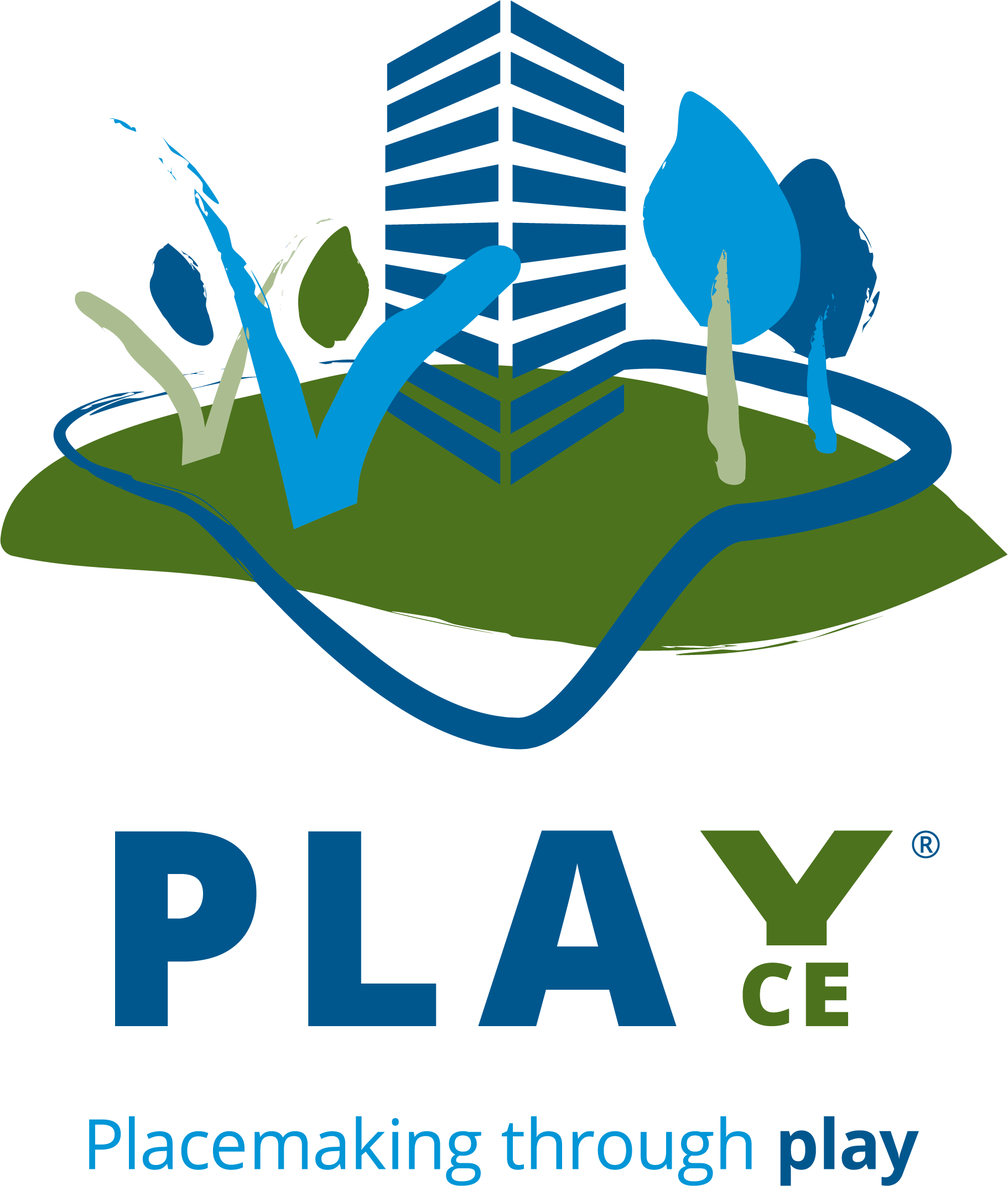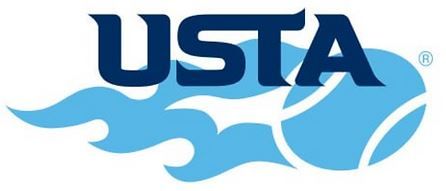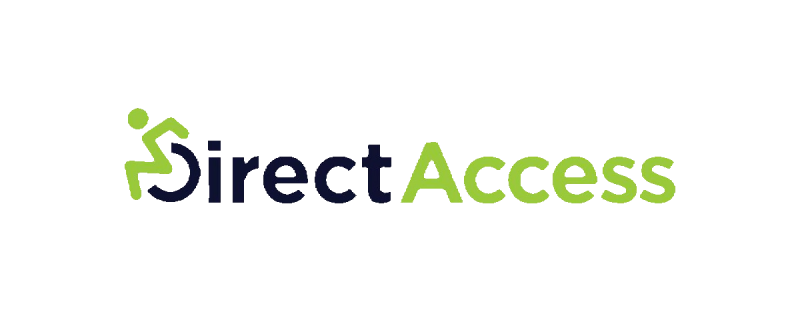Leveraging Emotional Intelligence for Park Agency/Foundation Success
Kevin Korenthal • February 18, 2025
This is a subtitle for your new post
In today’s fast-paced and interconnected world, Emotional Intelligence (EQ) is more than just a buzzword—it's a critical skill that drives effective leadership, fosters collaboration, and enhances organizational success. The National Association of Park Foundations (NAPF) recently hosted a webinar presented by Kevin D. Korenthal, CAE, focusing on how park agencies and foundations can harness EQ to build strong partnerships and achieve their mission-driven goals.
This blog explores the insights shared in the webinar, providing a comprehensive understanding of EQ, its importance in the park foundation/agency relationship, and practical steps for developing and applying EQ skills.
What is Emotional Intelligence (EQ)?
Emotional Intelligence is the ability to perceive, understand, and manage emotions effectively in oneself and others. It involves recognizing emotional cues, responding appropriately, and balancing emotional and rational thought for sound decision-making. EQ also encompasses empathy, social skills, and conflict resolution, making it essential for building meaningful relationships and navigating social complexities.
For park foundations and agencies, EQ means fostering collaboration, trust, and mutual respect in partnerships. It plays a vital role in both personal and professional development, enhancing leadership, teamwork, and resilience.
Key Components of EQ
The foundation of Emotional Intelligence lies in five key components:
Emotional Awareness: Understanding one’s own emotions and recognizing those of others, fostering deeper connections with donors, partners, and communities.
Self-Regulation: Managing emotions to remain calm and focused, even in challenging situations.
Empathy: Seeing things from others’ perspectives to build trust and stronger relationships.
Social Skills: Communicating effectively, collaborating, and navigating complex partnerships.
Motivation: Staying committed to goals and inspiring others to support the mission.
Embracing these components enables park professionals to create stronger connections and achieve greater impact together.
Why EQ Matters in Park Foundation/Agency Relationships
The dynamic and collaborative nature of modern workplaces, especially in the nonprofit sector, makes EQ indispensable. High EQ enhances communication, conflict resolution, and relationship-building with colleagues, donors, and stakeholders. It is also a cornerstone of effective leadership, fostering motivation, resilience, and adaptability.
As automation increases, human-centric traits like empathy and emotional awareness become increasingly valuable. Organizations prioritize EQ for its positive impact on teamwork, job satisfaction, and overall performance. Unlike IQ, EQ can be developed, making it a critical skill for thriving in the evolving professional landscape.
Korenthal shared a personal anecdote, highlighting his initial struggles with EQ early in his career. Taking criticism personally and lacking patience strained his professional relationships and cost him a promotion. However, mentorship and dedicated effort to improve his EQ transformed his career trajectory, underscoring the power of emotional intelligence.
Statistics and Case Studies: The Power of EQ
Research underscores the transformative impact of EQ in the workplace:
EQ accounts for 58% of job performance, with 90% of top performers possessing high EQ (TalentSmart).
Teams with high EQ report better collaboration, higher job satisfaction, and reduced burnout.
PepsiCo leaders with high EQ achieved 10% higher productivity and 87% less turnover.
High-EQ recruiters in the U.S. Air Force outperformed peers by 300%, saving $3 million annually.
In healthcare, emotionally intelligent staff improved patient satisfaction, outcomes, and reduced claims.
These case studies illustrate how prioritizing EQ can lead to measurable benefits across industries, enhancing individual performance, organizational success, and community trust.
Developing Your EQ Skills
Building Emotional Intelligence begins with self-assessment. Identifying strengths and areas for improvement sets the stage for growth. Here are practical steps to enhance your EQ:
- Self-Assessment: Use tools to evaluate your current EQ level.
- Emotional Awareness: Practice active listening and maintain eye contact to build trust.
- Self-Regulation: Use breathing exercises or count backward from 5 to manage emotions during high-pressure situations.
- Empathy: Read stories of individuals overcoming challenges to gain diverse perspectives.
- Social Skills: Join networking groups to refine communication and collaboration abilities.
- Constant evaluation and benchmarking are key to a successful EQ journey. Regular assessments help track progress and refine strategies for continuous improvement.
Applying EQ to Advance Partnerships
Emotional Intelligence is instrumental in advancing partnerships within parks and recreation philanthropy. Key applications of EQ include:
- Building Trust: Through emotional awareness and empathy.
- Conflict Resolution: By practicing self-regulation.
- Effective Communication: Using active listening and clear messaging.
- Adaptability: Navigating challenges with resilience.
- Motivation: Inspiring shared commitment to goals.
- The benefits of applying EQ in partnerships are profound—enhanced collaboration, stronger relationships, aligned goals, and improved project outcomes.
Creating an Emotional Intelligence Development Plan
Unlike IQ, EQ can be cultivated through intentional practice. A personal EQ development plan involves:
- Self-Assessment: Identify your current EQ level.
- Goal Setting: Define what you aim to achieve.
- Action Steps: Practice emotional awareness, self-regulation, empathy, and social skills.
- Timeline: Set specific timelines for improvement.
- Tracking Progress: Maintain a journal to document milestones and setbacks.
- A testimonial from the webinar highlighted Lindsey’s journey—transforming strained relationships into thriving collaborations by developing her EQ, leading to a 20% increase in funding within six months. Her story exemplifies how EQ development can drive both personal and organizational success.
Tools for Assessing Emotional Intelligence
Several tools can help assess and improve EQ, including:
These tools provide valuable insights and benchmarks for your EQ journey, enabling continuous growth and development.
Conclusion
Emotional Intelligence is not just an individual skill but a collective resource essential for advancing philanthropic missions in parks and recreation. By understanding, developing, and applying EQ, park agencies and foundations can foster stronger partnerships, achieve greater impact, and create lasting positive change.
The journey to mastering EQ requires commitment, practice, and continuous learning. Start your EQ journey today and unlock the potential for transformative success in your organization.
For more information, contact Kevin D. Korenthal, CAE, Executive Director of the National Association of Park Foundations, at execdir@the-napf.org.

Welcome to 2025! We know it’s going to be a great year. I wanted to take a moment to express my heartfelt gratitude to you — the members of the National Association of Park Foundations. You, our 921 members representing more than 100 park foundations and/or agencies, are the driving force behind NAPF’s work. When I joined NAPF as its executive director in 2021, the organization’s membership structure was in need of significant improvement. Today, our membership offers more benefits than ever before, and as a result, being part of NAPF provides the greatest value it ever has. From the bottom of my heart, thank you for continuing to be part of this community. The year 2024 also saw remarkable growth in our programming, with several educational series and webinars taking place: Winter 2024 NAPF Parks & Connections Virtual Summit ONLINE COURSE: Establishing and Advancing a Park Foundation NAPF Panel Discussion: "Capital Campaign Chronicles: Real Lessons from the Field" The 2024 Lehman Awards at The NRPA Conference Play to Engage: Transforming Community Spaces Through Playful Placemaking ONLINE COURSE: Annual Fundraising for Park Foundations, Friends Groups, and Conservancies NAPF Spring Webinar Series: Houselessness Impacts to Community Green and Blue Spaces NAPF Spring Webinar Series: Effective Board Development and Board Service Webinar NAPF Spring Webinar Series: Mobilizing Your Team to Fundraise and Serve as Ambassadors of Your Mission Building Unified Parks: Enhancing Community Through Park Foundations & How To Start & Grow A Park Foundation WEBINAR: Expanding the Health Impact of Parks: Outdoor Fitness that’s Truly Inclusive In addition to these group events, NAPF worked one-on-one with a record 30 members this year to help them start or grow their park foundations. We also conducted board training and strategic planning for numerous member organizations. Looking ahead to 2025, NAPF is developing new programming and curriculum while bringing back popular offerings from previous years. This includes the online course: Annual Fundraising for Park Foundations, Friends Groups, and Conservancies. As part of our commitment to professional development, NAPF provides certificates of completion for events attended by our community members, and we are exploring the possibility of offering CEUs for our content. NAPF is also eager to work with park agencies interested in starting a new park foundation or reviving an existing one. Additionally, we are happy to partner with established park foundations to ensure they are structured for sustainable growth. 2025 is already shaping up to be the best year ever for parks and recreation philanthropy. Please feel free to reach out to me at execdir@the-napf.org to discuss how the NAPF can help you do what you do even better!

The homeless crisis in the United States has reached alarming levels, with tens of thousands of people living on the streets, many of whom suffer from chronic conditions, substance abuse, and mental health issues. While numerous strategies have been proposed and implemented to address this issue, one often overlooked solution lies in proactive community engagement—specifically, through enhanced funding for parks and recreational programs that can help mitigate the factors leading to homelessness, particularly among youth. By creating vibrant, active spaces and offering robust programming, communities can foster a sense of belonging, provide constructive outlets for energy, and offer early interventions that address the root causes of homelessness before they manifest in adulthood. The Role of Parks in Community Health and Well-being Parks and recreation facilities are more than just green spaces; they are vital components of community infrastructure that promote physical health, mental well-being, and social cohesion. According to the National Recreation and Park Association (NRPA), parks provide essential services that include physical activity spaces, social interaction opportunities, and mental health benefits, all of which contribute to the overall well-being of a community (NRPA, 2021). For youth, these spaces are particularly crucial. Parks offer safe environments where young people can engage in physical activities, learn new skills, and interact with peers, all of which contribute to their development into healthy, well-adjusted adults. Preventing Homelessness Through Early Intervention One of the most significant factors contributing to adult homelessness is a lack of early intervention in youth. High school dropouts, for example, are 4.5 times more likely to become homeless than those who graduate (National Coalition for the Homeless, 2019). In Lane County, for instance, the high school graduation rate is only 80%, leaving one in five young people at a significantly higher risk of falling into homelessness. By investing in park spaces and programs designed to engage youth, communities can address some of the root causes of homelessness early on. Active spaces that include fitness stations, sports facilities, and structured programs like Zumba, tai chi, and after-school activities can provide young people with the stability, mentorship, and physical activity they need to stay on a positive trajectory. These interventions are not just about keeping kids off the streets; they are about fostering environments where young people can thrive. The Importance of Multi-generational and Active Park Spaces There is a need for parks that cater to multiple generations and provide diverse amenities beyond the traditional playgrounds for small children. Parks with fitness stations, ninja courses, and spaces for activities like tai chi or Zumba can attract a broader range of users, from teenagers to adults and seniors, making parks a focal point for community life. Research supports the idea that multi-generational park spaces can reduce crime and increase community engagement (Harnik & Welle, 2011). By creating these active spaces, communities can make parks places of congregation and positive activity, which can, in turn, decrease the adverse behaviors often associated with underutilized or neglected areas. Addressing the Challenges of Funding and Policy One of the significant challenges in creating these active, program-filled spaces is funding. While the equipment and initial setup of these parks are expensive, the real costs often come from maintenance, programming, and ensuring that these spaces remain safe and accessible to all community members. Securing funding for these projects can be difficult, particularly when donors are more focused on immediate, visible crises like homelessness or hunger. However, by shifting the narrative from reactive to proactive solutions, communities can begin to see the value in these investments. Leaders in the outdoor fitness industry have demonstrated how communities can transform underutilized spaces into vibrant community hubs through strategic partnerships and innovative funding models. By leveraging these models, park foundations and community leaders can advocate for the necessary resources to create spaces that will serve as preventive measures against future homelessness. Conclusion The homeless crisis requires a multi-faceted approach, one that includes not only immediate support for those currently on the streets but also long-term strategies to prevent future homelessness. By investing in parks and recreation, particularly in spaces that engage youth and offer multi-generational activities, communities can address some of the root causes of homelessness before they fully develop. These active spaces provide more than just recreation; they offer opportunities for early intervention, community engagement, and the creation of safe, healthy environments where all members of a community can thrive. The solution to the homelessness crisis is complex, but it is clear that proactive, preventive measures like better park and recreation funding must be a part of the strategy. By creating environments that support the well-being of all community members, we can make significant strides in reducing the risk factors that lead to homelessness, ultimately building stronger, more resilient communities. Works Cited Harnik, Peter, and Ben Welle. Measuring the Economic Value of a City Park System. The Trust for Public Land, 2011. National Coalition for the Homeless. Youth Homelessness. National Coalition for the Homeless, 2019. National Recreation and Park Association (NRPA). Parks and Recreation: Essential for Community Well-being. NRPA, 2021.

As we prepare for our upcoming webinar, "Play to Engage: Transforming Community Spaces Through Playful Placemaking", we are excited to share an in-depth look at one of our most impactful projects—the transformation of Irving Street Park and Playground in Westminster, Colorado. This project highlights how playful placemaking can achieve remarkable outcomes and serves as a testament to the power of community engagement. The Westminster Legacy Foundation Partnership In March 2023, PLAYCE Studio collaborated with the Westminster Legacy Foundation and Westminster Parks, Recreation, and Libraries to bring our playful placemaking methodology to life. With funding support from Colorado Public Health, this partnership aimed to revitalize Irving Street Park and Playground, turning it into a vibrant community hub. Key Outcomes Achieved Through Playful Placemaking Enhanced Community Involvement: The project kicked off with a series of playful workshops designed to engage residents of all ages and backgrounds. Individuals who did not speak English were supported through provided translation services. By using games and interactive activities, we were able to gather a diverse range of ideas and feedback, ensuring that the park's design truly reflected the community's desires and needs. Increased Trust and Collaboration: Through the playful engagement process, community members developed a strong sense of trust and collaboration. This was evident in the enthusiastic participation and the willingness of residents to work together towards a common goal. The playful approach broke down social barriers, making it easier for everyone to contribute their unique perspectives. Creative Problem-Solving: The playful activities stimulated creative thinking and problem-solving. Residents were encouraged to think outside the box and propose innovative solutions for the park's design. This led to unique features that might not have been considered through traditional engagement methods, such as interactive play structures and community art installations. Accelerated Decision-Making: Playful placemaking sped up the decision-making process. The enjoyable and inclusive nature of the activities made it easier to reach a consensus, allowing the project to move forward quickly. This efficiency was crucial in maintaining momentum and keeping the community engaged and excited about the project. Legacy of Community Champions: One of the most significant outcomes was the creation of a legacy of community champions. The playful engagement process empowered residents to take ownership of the park, fostering a sense of pride and commitment to maintaining and improving the space. These champions continue to advocate for the park and support ongoing community initiatives. Intangible Outcomes and Personal Stories The impact of playful placemaking goes beyond tangible results, touching the lives of individuals in profound ways. Here are some heartwarming stories from the Westminster project: Angelica's Voice: Angelica, a Spanish-speaker and a key figure in the park's community garden, had never been able to provide input at a community event before. Through provided translators, she described the experience as feeling seen and heard not just by municipal leaders but by her fellow citizens who enjoyed and loved the garden. Initially, she said she wouldn't be available for the second meeting, but she returned and brought friends along. Mae's Family: Mae, one of our hired Hmong translators who grew up in the neighborhood, was deeply moved by the process. After the first meeting, she ensured that her elderly mother and brother, who still lived in the area, attended the second meeting. Mae emphasized that this initiative was too important for the future of their community to miss. Unexpected Connections: During one session, two men, one older and one younger, were seen playing at a table. The older man was trying to convince the younger man to accept a valuable gift from his garage, emphasizing that he had no more use for it but wanted the young man to have it. This interaction highlighted the deepening of community bonds through playful engagement. Teenagers' Transformation: Three local high school students attended the workshop initially to get out of class. Confused at first, they were overheard planning to leave during a break. However, they ended up staying for the entire meeting and asked if they could bring friends the next day. They returned the next day, empowered by the opportunity to talk to adults and be part of meaningful conversations. Funding and Support The success of the Westminster project was made possible by the generous funding from Colorado Public Health. This support allowed the Westminster Legacy Foundation and Westminster Parks, Recreation, and Libraries to partner with PLAYCE Studio, leveraging our expertise in playful placemaking to achieve outstanding results. Join Us for the Webinar To learn more about how playful placemaking can transform community spaces and achieve meaningful engagement, join us for our webinar, "Play to Engage: Transforming Community Spaces Through Playful Placemaking". We will dive deeper into the Westminster case study and showcase other successful projects, providing valuable insights and practical tips for park foundation executives and community leaders. Stay tuned for more details, and get ready to be inspired by the power of play in community engagement! #CommunityEngagement #Placemaking #GrantFunding #PlayfulPlacemaking #PLAYCEStudio #Westminster

By PlayCE Studio In the ever-evolving landscape of design and planning, grant funders are increasingly prioritizing projects that demonstrate a commitment to meaningful and inclusive community engagement. This shift reflects a growing recognition of the value that community input brings to creating spaces that are truly reflective of the people who use them. According to recent data, over 60% of grant applications now require evidence of community engagement, and projects that excel in this area are twice as likely to receive funding compared to those that do not. At the heart of this new demand is the concept of playful placemaking—a transformative approach that leverages the universal language of play to foster deeper connections, trust, and collaborative creativity within communities. But what exactly makes playful placemaking the key to meeting these new requirements? The Power of Playful Placemaking Breaking Down Barriers and Creating Inclusivity: Traditional engagement methods often fall short in reaching diverse community members. Playful placemaking breaks down these barriers by inviting participation in fun, inclusive activities that encourage everyone to contribute their ideas and perspectives. This approach is especially effective in engaging underrepresented groups, ensuring a more comprehensive and authentic community input. Building Trust and Empathy: Play naturally builds trust and empathy among participants. When community members engage in playful activities, they are more likely to open up, share their thoughts, and collaborate effectively. This creates a foundation of trust that is crucial for meaningful engagement and the success of planning projects. Enhancing Creativity and Problem-Solving: Playful activities stimulate creativity and out-of-the-box thinking. By incorporating games and playful exercises into the engagement process, planners can tap into the community's collective creativity to develop innovative solutions that might not emerge through conventional methods. Speeding Up the Process and Leaving a Legacy of Champions: Playful placemaking not only accelerates the engagement process but also leaves a lasting impact by creating a network of community champions. Furthermore, these activities empower participants to become advocates for future projects, ensuring a legacy of proactive community involvement and sustained support for ongoing initiatives. Statistics on Community Engagement Requirements The emphasis on community engagement in grant applications is not just a trend; it's becoming a standard. According to the National Endowment for the Arts, 65% of their grants in 2023 mandated robust community engagement components. Moreover, a study by the Knight Foundation found that projects demonstrating high levels of community involvement had a 70% higher success rate in securing funding. Opportunities for Meaningful Community Engagement The rise in demand for meaningful community engagement has opened up numerous opportunities for projects that excel in this area. Grants that require comprehensive community engagement are more abundant, with funders like the Kresge Foundation and the Robert Wood Johnson Foundation leading the way. These funders not only provide financial support but also offer resources and training to help organizations improve their engagement practices. How You Can Meet This Demand for Meaningful Engagement As the demands from grant funders for meaningful and inclusive community engagement continue to grow, playful placemaking stands out as a key strategy for meeting these requirements. By fostering deeper connections, building trust, and enhancing creativity, playful placemaking ensures that community voices are not just heard but actively shape the planning and design process. For organizations seeking to secure funding and create impactful projects, embracing the principles of playful placemaking is not just advantageous—it's essential. Curious to see how playful placemaking works in practice? Join us for our upcoming webinar, "Play to Engage: Transforming Community Spaces Through Playful Placemaking". We'll dive into compelling case studies that showcase the power of play in community engagement, highlighting real-world examples of success. This is an unmissable opportunity for park foundation executives and community leaders to learn how to leverage the power of play to meet grant requirements and make a lasting positive impact. Stay tuned for more details and get ready to be inspired! Sources National Endowment for the Arts Grants Overview - National Endowment for the Arts Knight Foundation Community Engagement - Knight Foundation Kresge Foundation Grantmaking - Kresge Foundation Robert Wood Johnson Foundation - Robert Wood Johnson Foundation These sources provide detailed guidelines and insights into the growing emphasis on community engagement in grant applications, underscoring the importance of inclusive practices in securing funding.

Hey everyone! Have you ever thought about how our beloved public parks are not just patches of green but are actually bursting with benefits for all of us? Let’s dive into the treasure trove of goodies they offer, both those you can count in your wallet and those priceless feelings that make your heart full. 🌈 🚀 Tangible Treasures: Money Does Grow on Trees! Real Estate Gold: Living near a well-loved park is like hitting the real estate jackpot. Homes get a value boost, and local governments see their coffers fill from higher property taxes. It’s a win-win! Tourist Magnet: Unique or expansive parks draw visitors like bees to honey, buzzing life into local businesses. The cash register rings louder with every hotel stay, meal eaten, and souvenir bought, all thanks to our green gems. Job Factory: Parks are not just about leisure; they're big-time employers too! From keeping the lawns pristine to leading adventure-packed tours, parks keep our community bustling with job opportunities. The Health Savings Account: Parks are nature’s gyms—no membership required! Active communities mean fewer sick days and less spending on healthcare. Talk about a natural prescription for a happy life! 💖 Intangible Jewels: The Heart and Soul of Our Community The Social Network: Beyond the digital world, parks are the ultimate social platform. They bring us together, knitting our community tighter with every picnic, game, and stroll. Eco Warriors: Our leafy friends are silent heroes, battling pollution and giving us cleaner air and water. They're the unsung protectors keeping our environment vibrant and healthy. Mental Health Sanctuaries: In the hustle and bustle, parks are our serene escapes. They’re where stress melts away, and joy takes root, proving nature is the best therapist. Classrooms Without Walls: Parks are brimming with stories and lessons, offering free classes on nature, conservation, and the world around us. They're where curiosity grows and learning is an adventure. 🌟 The Sparkling Conclusion Our public parks are more than just pretty spaces; they’re the heartbeat of our communities, fostering health, wealth, and happiness. They’re proof that the best things in life are free—or at least, surrounded by green! So, let's cherish and protect these communal treasures, ensuring they continue to enrich our lives in countless ways. Let's lace up our sneakers, step into the sunshine, and enjoy the bounty our parks offer. After all, every visit is an investment in our community’s future, making it brighter, healthier, and more connected. Here's to our parks, the unsung heroes of our everyday life! 🎉🌿

Welcome to our comprehensive guide on how to effectively manage volunteer days in parks! Whether you’re part of a park foundation, a community organizer, or simply looking to make a difference, this guide is packed with valuable insights and practical tips to ensure your volunteer day is both impactful and enjoyable. 1. Preparation and Planning: Before the volunteers arrive, it's crucial to set the stage for a successful day. Start by ensuring clear communication about the meeting point and activities planned. Utilize eye-catching signage and a streamlined check-in process to create a welcoming atmosphere. It’s also essential to assign knowledgeable trail leaders who can guide volunteers and provide first aid if necessary. Their role is pivotal in maintaining organization and safety throughout the day. 2. Volunteer Management: Managing volunteers begins with effective recruitment. Tap into various community groups, schools, and businesses to attract a diverse group. Once gathered, conduct an orientation session to acquaint them with the park and their tasks. Emphasize safety and provide clear instructions. Using identifiable clothing or badges for volunteers and leaders is a great way to enhance coordination. 3. Event Execution: Task allocation is key. Assign responsibilities based on volunteers’ abilities and interests, and ensure trail leaders are available for support. Start the day with a comprehensive safety briefing, especially if the activities involve the use of tools or navigating potential hazards. 4. Environmental Education and Engagement: Take this opportunity to educate volunteers about local habitats, trail maintenance, and conservation efforts. Activities like Google Earth projects can be a fun and interactive way to help volunteers understand the park's geography and ecosystems. This not only enriches their experience but also fosters a deeper connection with nature. 5. Logistics and Resources: Proper logistics are fundamental. Ensure there’s adequate water supply and encourage the use of reusable containers to promote environmental responsibility. Also, provide the necessary tools and equipment, and instruct volunteers on their proper use to prevent accidents. 6. Community Engagement: Encourage volunteers to share their experiences on social media. Use specific hashtags, take group photos, and create a vibrant online presence to promote your park’s activities. Gathering feedback from participants is also invaluable for improving future events. 7. Special Projects: Support volunteers who wish to undertake individual projects like garden creation or trail development. Provide guidance and resources to help them succeed. Additionally, offer education on specific environmental issues pertinent to your park, such as invasive species management. 8. Follow-Up and Retention: Post-event, keep in touch with your volunteers. Send out thank you messages, share updates, and acknowledge their efforts publicly. Offer a variety of tasks and learning opportunities in future events to keep them engaged and returning. 9. Resource Compilation: Provide volunteers with additional learning materials from reputable sources like the EPA or local environmental groups. This not only aids in their education but also demonstrates your commitment to environmental stewardship. 10. Future Planning: Involve volunteers in long-term projects that contribute to the park’s sustainability and community value. This fosters a sense of ownership and deepens their commitment to the park’s mission. Managing volunteer days in parks is a rewarding endeavor that requires careful planning, effective communication, and a passion for community engagement. By following these guidelines, you can create a meaningful and productive experience for your volunteers, one that they’ll remember and want to participate in again. Want to learn from a master naturalist? Find the webinar and resources that this blog post was developed from by visiting our member-only webinar section on the website. Login to your account, click the link and look for "FREE WEBINAR: Carrying Out Your Volunteer Days!". Happy volunteering!
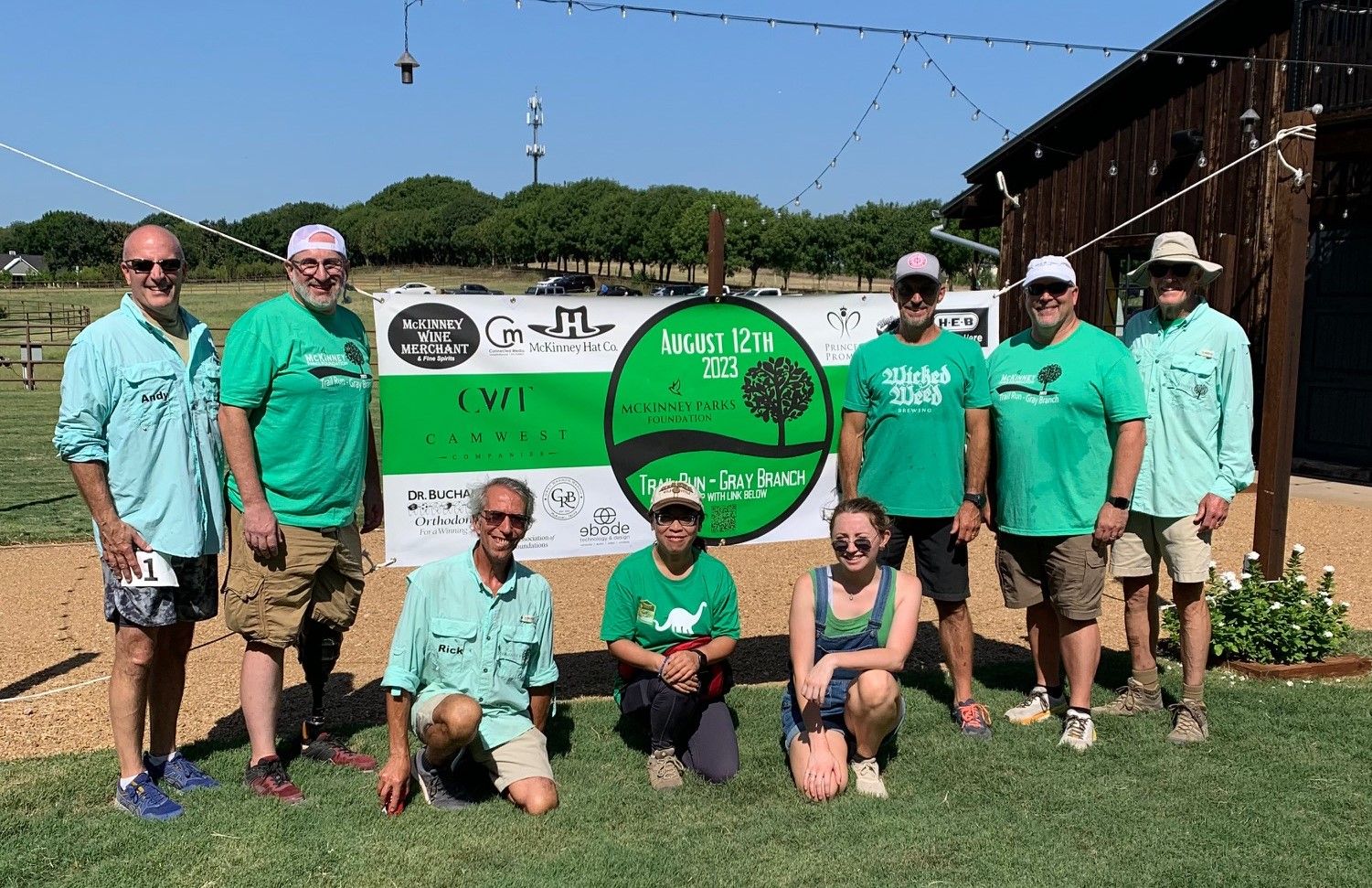
Creating a Code of Professional Ethics for professionals and volunteers serving on park foundations is essential to establish standards of conduct and guide decision-making. Below is a sample template that can be adapted to the specific needs and values of your organization: ________________________________________ Preamble: This Code of Professional Ethics outlines the principles and standards that all professionals and volunteers associated with [Park Foundation Name] are expected to uphold. Our commitment to these values ensures integrity, respect, and excellence in all aspects of our work and interactions. 1. Commitment to the Mission: • Uphold and promote the mission, vision, and values of the foundation. • Strive for excellence in all aspects of park management and conservation. 2. Integrity and Accountability: • Conduct all activities with the highest level of integrity and accountability. • Ensure transparency in decision-making and financial transactions. • Avoid conflicts of interest and disclose any potential conflicts promptly. 3. Respect and Inclusivity: • Treat all individuals with respect, dignity, and fairness, regardless of background or position. • Foster an inclusive environment that embraces diversity and equality. • Ensure accessibility and inclusivity in all park foundation programs and facilities. 4. Environmental Stewardship: • Promote sustainable practices and environmental stewardship in all foundation activities. • Advocate for the protection and preservation of natural resources. 5. Professionalism: • Maintain high standards of professionalism in all work. • Continuously seek opportunities for learning and professional development. • Share knowledge and expertise with colleagues and the community. 6. Collaboration and Community Engagement: • Foster collaborative relationships with community members, partners, and stakeholders. • Actively engage in community outreach and education regarding park foundation initiatives. 7. Compliance with Laws and Regulations: • Adhere to all applicable laws, regulations, and ethical guidelines relevant to park management and nonprofit operations. • Report any illegal or unethical behavior observed within the organization. 8. Confidentiality: • Respect the confidentiality of sensitive information pertaining to the foundation, its members, and its stakeholders. 9. Advocacy and Representation: • Represent the foundation and its interests in a positive and responsible manner. • Advocate for policies and initiatives that align with the foundation’s mission and benefit the community. 10. Conflict Resolution: • Address conflicts constructively and seek resolution in a manner that respects all parties involved. Enforcement and Compliance: Adherence to this Code of Professional Ethics is mandatory for all professionals and volunteers. Violations may result in disciplinary action, up to and including termination of volunteer or professional engagement with the foundation. ________________________________________ This code should be regularly reviewed and updated to reflect evolving standards and practices in the field. It's also essential to ensure that all team members are familiar with the code and understand its importance in their daily work and interactions.

🌟 Welcome to Our Outdoor Fitness Transformation Zoominar! 🏞️💪 Embark on a journey of community well-being and fitness innovation with our Zoominar highlights reel! In this session, we delve into the realms of outdoor fitness, unveiling successful practices, identifying obstacles, and sharing transformative experiences for communities like yours. 🔍 What to Expect: Discover the key to reimagining fitness accessibility, breaking barriers, and fostering community engagement. Join us as we explore real-life case studies, funding strategies, and practical insights into project planning and site design. 🌈 Let's Transform Together! Together, let's uncover the power of outdoor fitness to create healthier, more connected communities. Watch the full Zoominar for a dose of inspiration and insights. Don't miss out on the transformative possibilities that await! 🌿💚 #OutdoorFitness #CommunityWellness #TransformationJourney

Question: Our Park Foundation currently faces a challenge in our relationship with the park agency, as we're in a disagreement over the ownership of park infrastructure and programming. Answer: To navigate this situation successfully, it's crucial to shift our focus. Instead of asking who owns what, let's pose the question: How can we, as the agency and foundation, collaborate to enhance the impact of parks and recreation in our community? It may seem like I'm sidestepping the issue, but I genuinely believe that in a thriving agency-foundation partnership, ownership extends beyond physical assets to include shared responsibility for outcomes. In a successful collaboration, the agency might own the property, but the foundation plays a pivotal role in developing spaces and programming. Ownership becomes mutual, contributing to positive outcomes. In some cases, the foundation may acquire property through grants or philanthropic resources, with the agency guiding transactions and handling building and maintenance. Here, both the foundation and agency become co-owners of the facilities. If your current challenge revolves around ownership disputes, I recommend reaching out to the National Association of Park Foundations. They can provide guidance on transforming the conversation from adversarial to collaborative, fostering positive outcomes and shared benefits for both parties involved.

It's proved challenging to provide an exact number of park foundations or similar entities in the United States. These organizations can vary significantly in size, scope, and recognition, making it difficult to pinpoint a precise count. The IRS does not disclose specific information about 501(c)(3) organizations to determine the exact number of park-related entities, and it's important to note that the (c)(3) designation is just one of several IRS designations available to park foundations. Park foundations and support organizations can be found at various levels, including city, county, state, and national levels, each with its own unique focus and reach. Additionally, many parks have friend groups or community-based organizations that play essential roles in supporting their preservation and enhancement. It's worth mentioning that some park foundations may be dormant or have had their charitable status revoked over time. A recent study shed light on the critical role of over 100 nonprofit organizations in supporting California's state parks. However, this figure pertains only to state parks and not the entire country. Determining the total number of park foundations statewide is virtually impossible. The range could potentially be vast, possibly ranging from 1,000 to 5,000. If I were to speculate, based on available information, I would estimate that there are between 10,000 and 20,000 nonprofit organizations actively supporting parks and recreation across the United States. However, it's important to note that the actual number may fluctuate significantly due to factors such as dormant organizations and others raising and spending substantial funds annually.
